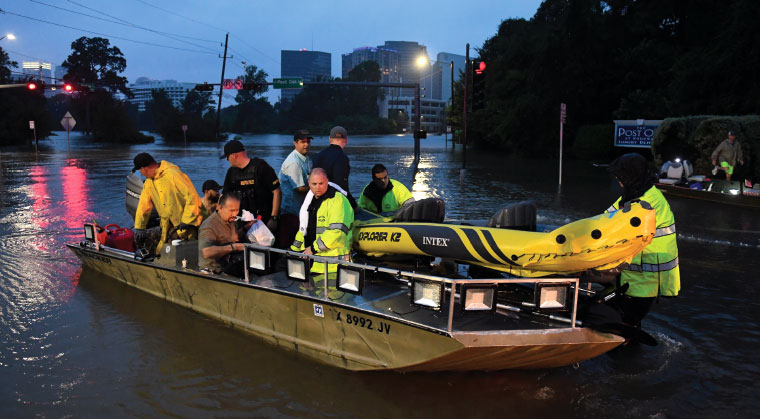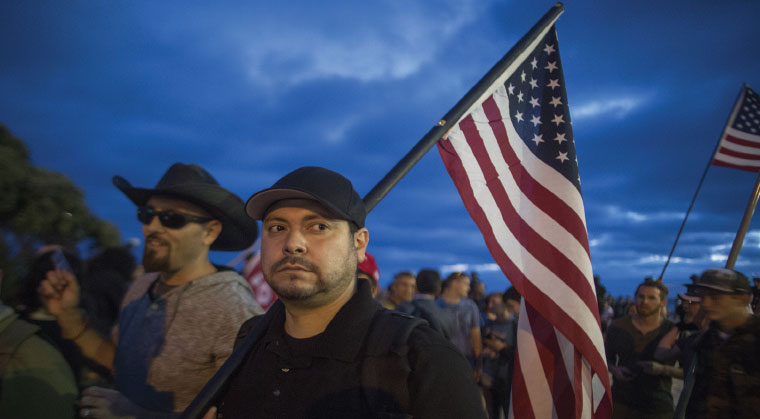Partnering with Putin


MEETING EXPECTATIONS We saw with our own eyes that unless Trump and Putin are great actors they are not in cahoots and were mutually ill at ease during their joint media statements before their two-hour meeting
We can now put old rumors to rest. We know for sure that US President Trump and Russian President Putin finally met in person at last weekend’s G-20 summit in Hamburg Germany and not on the sidelines of a Moscow entertainment spectacle in 2013.
We saw with our own eyes that unless Trump and Putin are great actors they are not in cahoots and were mutually ill at ease during their joint media statements before their two-hour meeting.
President Trump also resisted temptation to use his strongarm handshake on Putin who is not a fellow one toys with.
At least nobody called this a summit but it’s also clear that Trump and Putin delivered some tangible results for the time invested.
At press time all was quiet on Syria’s border with Israel thanks to a ceasefire the two leaders brokered in three southwestern Syrian provinces. In welcoming the deal intended to halt the advance of warring factions which include Hezbollah and Iran Prime Minister Netanyahu told his cabinet Sunday that Israel will be monitoring the agreement to ensure that Iran and its proxies in Syria don’t use the timeout to stake out permanent positions on the ground.
Since this is the fifth ceasefire declared in the last eighteen months of a conflict that has raged for more than six years is there any reason for optimism?
“This one is different. The sides are going to keep it although it’s going to be a long process because we don’t have any agreements on other parts of Syria ” says Dr. Jiri Valenta a former consultant to senior officials in the Reagan administration who along with his wife Leni Friedman Valenta runs the Institute of Post-Communist Studies and Terrorism.

Dr. Jiri Valenta: “We have other important issues on the agenda with Russia and not just Syria. We’ve got a tremendous threat to our national security in North Korea. A nuclear war will also affect Russian territory in the Far East”
Four of the five previous ceasefires had Obama administration fingerprints all over them. “Neither Obama nor Hillary could have made this agreement” Dr. Valenta contends. “The Russians didn’t respect Obama and they didn’t want to deal with Hillary either. It’s clear Putin was waiting for the new administration because they believe he [Trump] can keep a deal and that’s why they wanted him to be president.”
That assertion lends credibility to the allegations of Russian tampering with the 2016 presidential election but Dr. Valenta says playing favorites in US elections is old hat for Russia.
“It’s not a conspiracy” he said. “In 1968 they favored Hubert Humphrey and even offered him financial assistance. In 1976 they favored Gerald Ford.” Dr. Valenta says some time before Ford’s deputy national security advisor William Hyland died in 2008 he confided in Valenta that Ford was shocked when Soviet leader Leonid Brezhnev told him before the 1976 election: “I hope you win.”
“The Russians also leaned slightly toward Ronald Reagan because they hated Jimmy Carter so much ” Dr. Valenta says. “So they’ve always had their favorites. Now they have the modern means of showing it through cyber but I’m not so obsessed with that.
“You have to let it go now ” Dr. Valenta adds. “We have other important issues on the agenda with Russia and not just Syria. We’ve got a tremendous threat to our national security in North Korea. A nuclear war will also affect Russian territory in the Far East. Then there’s Ukraine. I still believe Mr. Trump needs to get more involved in this area.”
But it doesn’t appear as if most media outlets and politicians will let it go. The front-page story in the Sunday New York Times reported “Trump Team Met with Lawyer Linked to Kremlin During Campaign.” It sounds sizzling however as the article unfolds the main topic of this “previously unreported meeting” was Russia’s objection to a 2012 US law known as the Magnitsky Act that blacklists suspected Russian human rights violators. Putin retaliated by halting American adoptions of Russian children. It’s one of many thorny issues between the two countries but hardly the stuff that should keep a conspiracy theorist up at night.
The only one who can seemingly put an end to this saga is special prosecutor Robert Mueller who has an open-ended time frame in which to investigate Trump his family and any other actors in the Russian saga who could have run afoul of the law.
Two months ago Jonathan Tobin argued in the National Review that special prosecutors quickly become attached to the extraordinary power they’ve been granted and therefore the probe would be better handled by a bipartisan commission of Democrats and Republicans. “What the country needs is answers about Trump and Russia not a probe that will last for years and probably never do much to resolve the public’s questions about the 2016 election.” (Originally featured in Mishpacha Issue 668)
Oops! We could not locate your form.













